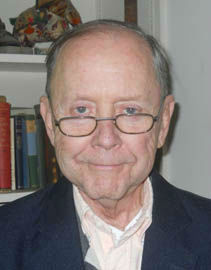
Culture
Headed by Bishop Andrew Cozzens of Crookston, Minn., the Revival folks maintain a resolutely positive approach to messaging. Rather than directly refuting erroneous thinking, they focus on the beauties and joys of Eucharistic faith.

Shaw
A New York Times/CBS poll some years ago found that two out of three adult American Catholics didn't believe that at Mass the consecrated bread and wine truly became Jesus' body and blood. Instead, they supposed these were merely "symbolic reminders" of Christ. The Times headlined its story "Future of Faith Worries Catholic Leaders."
And so it did. There was much hand-wring and crying of woe in response to this disturbing finding. But time passed, as it will do, hand-wringing and woe-crying ceased, as they will, and nothing was done about the problem.
A couple of years ago another widely noted poll produced nearly the same result -- according to the Pew Research Center, only 31 percent of Catholics believe in the Real Presence. Nothing had changed since the earlier poll -- except that then 26 percent of American Catholics attended Mass every Sunday, whereas by now the figure was 17 percent. Weekly attendance is of course the norm set by the Church.
Fresh hand-wringing ensued, but now with a difference. The American bishops launched an ambitious program called the Eucharistic Revival to face up to the problem and bolster faith in the Real Presence of Christ in the Blessed Sacrament -- body and blood, soul and divinity, as an old formula has it.
Already the Revival can point to some success -- 8,000 volunteer "parish point persons" committed to promoting the program, over 12,000 guides to steps to take distributed. The national program will culminate at a National Eucharistic Congress next July 17-21 in Indianapolis. Its program will feature presentations and liturgical events meant to motivate and train attendees who, planners hope, will return home full of zeal and know-how to spread the message of Eucharistic faith in their parishes.
While the planners say hopefully that as many as 80,000 people be there for some or all of the program, the level of commitment is clearly more important than the numbers. The Eucharistic Congress will be followed by a "Year of Going Out on Mission" continuing to Pentecost, 2025.
Headed by Bishop Andrew Cozzens of Crookston, Minn., the Revival folks maintain a resolutely positive approach to messaging. Rather than directly refuting erroneous thinking, they focus on the beauties and joys of Eucharistic faith. The Revival website says, "We all need healing, yet many of us are separated from the very source of our strength. Jesus Christ invites us to return to the source and summit of our faith -- his real presence in the holy Eucharist."
But even so, the problems are substantial, as pointed out by Mark Gray of the Center for Applied Research in the Apostolate. Summing up findings of CARA's own survey of adult Catholics, Gray reports that 38 percent know what the Church teaches and believe in the Real Presence, while 5 percent believe without recognizing this as Church teaching. Another 48 percent don't know what the Church teaches and consider the bread and wine symbols only, while 9 percent do know the teaching but don't believe. Plainly, then, a good deal of non-belief in the Real Presence has its origin in simple ignorance. Seen in this light, the Revival's positive approach makes excellent sense.
Responding years ago, to the bad news in that New York Times/CBS poll, the distinguished theologian Germain Grisez and I coauthored an article pointing to "the pervasive secularization of Western culture" as a central cause of the drop-off in faith in the Real Presence. The Eucharistic Revival is tackling a fearsome opponent in seeking to turn things around. One can only hope -- and pray -- for its success.
- Russell Shaw is the author of more than twenty books. He is a consultor of the Pontifical Council for Social Communications and served as communications director for the U.S. Bishops.
Recent articles in the Culture & Events section
-
What is truth?Michael Reardon
-
The 75th anniversary of St. Ignatius of Loyola Church, Chestnut HillThomas Lester
-
The most important prayer you already knowLaura Kelly Fanucci
-
Two years after DobbsRussell Shaw
-
Scripture Reflection for July 21, 2024, Sixteenth Sunday in Ordinary TimeDeacon Greg Kandra





